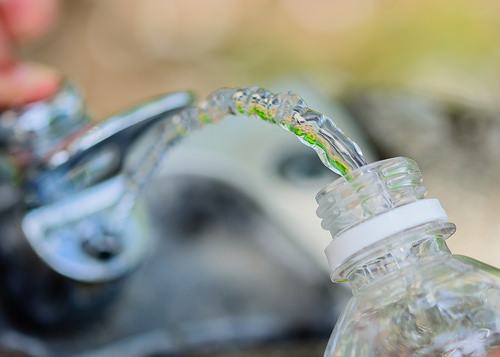Are you drinking a lot of water but still feeling dehydrated? While it is typical to wake up thirsty or become so throughout the day, you should be fine after drinking water. Exercise, spicy and salty foods can trigger thirst. If you drink enough water to get your blood levels back to normal, your thirst should be satisfied. However, if this is not the case, you should see your doctor to determine if you have an underlying cause of your dehydration.

Why Do You Drink a Lot of Water But Still Feel Dehydrated?
1. Foods That Cause Excessive Thirst
If you drink a lot of water still dehydrated, it could be a result of eating a spicy meal or salty food. When you eat these types of food, the sodium content in your body raises and your cells try to restore balance by entering your bloodstream. Because your kidneys want to remove the extra sodium, they cause you to urinate more. In turn, your brain tells you to drink more so you do not become dehydrated. In addition, spicy food raises your metabolism and body temperature so your body's instinct is to drink more fluids.
2. Organ Damage
There are several organ damage conditions that can trigger excessive thirst. For example, if you are having kidney failure, your body cannot keep your body's fluid in balance. If you are experiencing heart failure, you have lower blood volume and insufficient blood flow. Liver issues cause similar results in terms of a decrease in blood levels and fluid balance. Even some mental illnesses can make you feel thirsty. These might include anxiety and stress.
3. Diabetes
If your blood sugar levels are elevated, your body tries to rid itself of the extra glucose by making you urinate more. The more you urinate, the more dehydrated your body may become. This symptom is a common indicator that someone may be suffering from diabetes. Other signs include fatigue, increased hunger, vision problems and weight loss. If diagnosed with this condition, your doctor will prescribe varying treatments that may include medication, dieting, exercise and other changes in your lifestyle.
4. Prescription Medications
Sometimes when you drink a lot of water still dehydrated, your medications can be the culprit. It is actually a common side effect of many drugs. Allergies medicines designed to clear up your runny nose can end up dehydrating your whole system if you don't drink enough fluids. Also, if a drug induces vomiting or diarrhea, you may experience dehydration so make sure to stay hydrated.
5. Stress
If you are under a lot of stress or are experiencing constant pressure, your body reacts by causing your adrenal glands to release stress hormones. The continued pressure causes the glands to tire, thus creating adrenal insufficiency. Because these same glands produce aldosterone which monitors your body's fluid levels, this can cause dehydration because your system is out of whack. Drinking more fluids can help initially, but eliminating stress is the only real solution.
6. Irritable Bowel Syndrome
Irritable bowel syndrome can cause chronic diarrhea and nausea, which can lead to dehydration. Sometimes the restrictive diets people put themselves on to control this condition can also trigger thirst because not enough fluids are found in the foods they are eating. This can be an added factor to the development of dehydration.
7. High Altitude
Sometimes you drink a lot of water still dehydrated because you have traveled to an area in a high altitude. When this happens, you have to acclimate to your new environment. Your breathing speeds up and you urinate more often. This is your body's way of adjusting, but too much of it can cause you lose the water you need to stay hydrated.
8. Dietary Supplements
There are several dietary supplements that can cause your urine output to go into overdrive. Natural does not necessarily mean good for you. Seemingly innocent supplements like watercress and parsley can lead to dehydration if you do not watch your fluid intake. Always speak with your doctor or nutritionist when making changes to your diet.
9. Drinking Alcohol
Ever wonder why a night full of drinks leads to a morning full of headaches? Alcohol makes you urinate more than normal so you lose the fluid you need instead of absorbing it into your system. In addition, it acts as a diuretic which makes your bladder work harder to eliminate water and makes you more dehydrated. You continue drinking alcohol even though you should stop because your judgment is impaired.
When to Seek Medical Help
When you are thirsty, your body is letting you know you need to drink. Usually, you can drink water and your thirst will go away. However, sometimes this does not help or your thirst is constant. When you drink a lot of water still dehydrated and you are experiencing additional symptoms, it is time to see your doctor to make sure you do not have an underlying condition.
Make sure to see a doctor right away if you are thirsty and also have:
- A constant thirst that cannot be relieved by drinking fluids
- Sores or cuts which don't heal
- Extreme hunger
- Blurry vision
- Frequent urination over five quarts in a day
